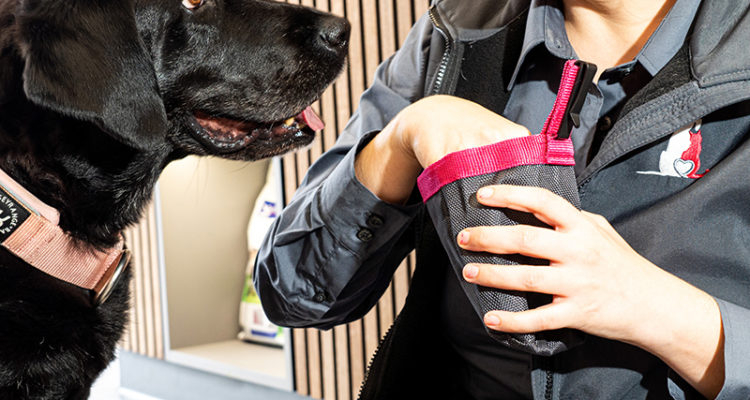Harrison Family Vets in Woodley has become the first in Reading to offer a traditional…

Advice on Leptospirosis Vaccination
What is Leptospirosis?
Leptospirosis (Lepto) is also known as Weil’s Disease and affects people as well as dogs. Caused by a bacteria called Leptospira it is a re-emerging disease and probably the most widespread and prevalent zoonotic disease in the world.
How do dogs catch Lepto?
Although Lepto is endemic in the UK, outbreaks tend to occur during episodes of wet weather and flooding and the bacteria can remain viable in the ground or stagnant water for months
Dogs normally become infected after contact with soil or water containing infected urine from rats, foxes etc or rarely directly from another dog. Any dog going outside can be affected although it is more common in working dogs and those with access to lakes and rivers.
How effective is vaccination?
Vaccination is the most effective tool available to prevent the disease and it also helps to prevent people becoming infected by carrier dogs who may not always show symptoms. Most available vaccines in the UK are effective at controlling clinical disease and preventing death. It is therefore appropriate to recommend vaccination against leptospirosis annually in all dogs in the UK.
Lepto 2 and Lepto 4 vaccination – what is the difference?
Different vaccines have different strains of Lepto in them and protection can be quite strain specific. Occasionally we do see Lepto in dogs that are already vaccinated and this is normally due to a strain not present in the vaccine given. The newer L4 vaccine has been available for over ten years and has wider protection than traditional L2. Recently advice from the WSAVA has recommended that UK vets switch to the L4 vaccine for routine use which has lead to the major L2 manufacturer ceasing production and switching to purely L4.
Does Lepto 4 vaccine have more side effects than Lepto 2?
When L4 was first launched this was a significant concern and widely shared in social media. However, since then, evidence shows that serious side effects are rare (less than 5 cases per 10,000 injections) and in reality there is little difference in risk between the vaccines. Sadly, that doesn’t mean that there are no risks to vaccination, especially as our pets may suffer allergic reactions much as we can. Any vaccine may also trigger the body to attack itself (autoimmune disease) although this is fortunately very rare. However the risks of catching Lepto outweigh the risks of a serious side effect, which is why we recommend vaccination in most dogs.
Is it true that you have to wait longer to take your puppy outside after Lepto 4 vaccination?
Yes and no…. The primary vaccine course for a puppy with L4 is from 6 weeks of age and there is a second injection 4 weeks later compared to 2 weeks for L2 with the Lepto vaccine considered most effective three weeks after the second injection. However, it is extremely important to start puppy socialisation as early as possible and we would advise not waiting with either vaccine. We recommend that you start taking your new puppy outside after their first vaccine, albeit carefully and avoiding any place that an unvaccinated dog or rats, foxes etc may have been. In practice this means normally they are ok to go to other people’s houses to meet vaccinated dogs and to be carried around outside e.g. down the high street. Any area with lots of dogs e.g. parks and green spaces and where there is stagnant or slow-moving water must be avoided.
Why do I need to have two injections for a Lepto Booster if I switch to L4?
Although the L4 vaccine probably does work effectively to booster the L2 vaccine, this is not licensed. If we give an L4 vaccine to a dog that has always had L2, at best the dog will be protected only against L2 and thus would not be considered fully vaccinated. In view of this we would always recommend a second visit 4 weeks later, although this only needs to be done once and is currently free of charge. If you decide to not return for the second injection, then we strongly recommend you speak to your kennels as early as possible to check they will still accept your dog.
Are there any L2 vaccines available in the UK?
The major manufacturer of L2 vaccines for the UK, MSD, has now ceased production and supplies are likely to run out around January 2025. It is likely that there will be several far less popular vaccines available from Europe that will only contain L2 but it is uncertain whether we will have a reliable source for these moving forwards.


